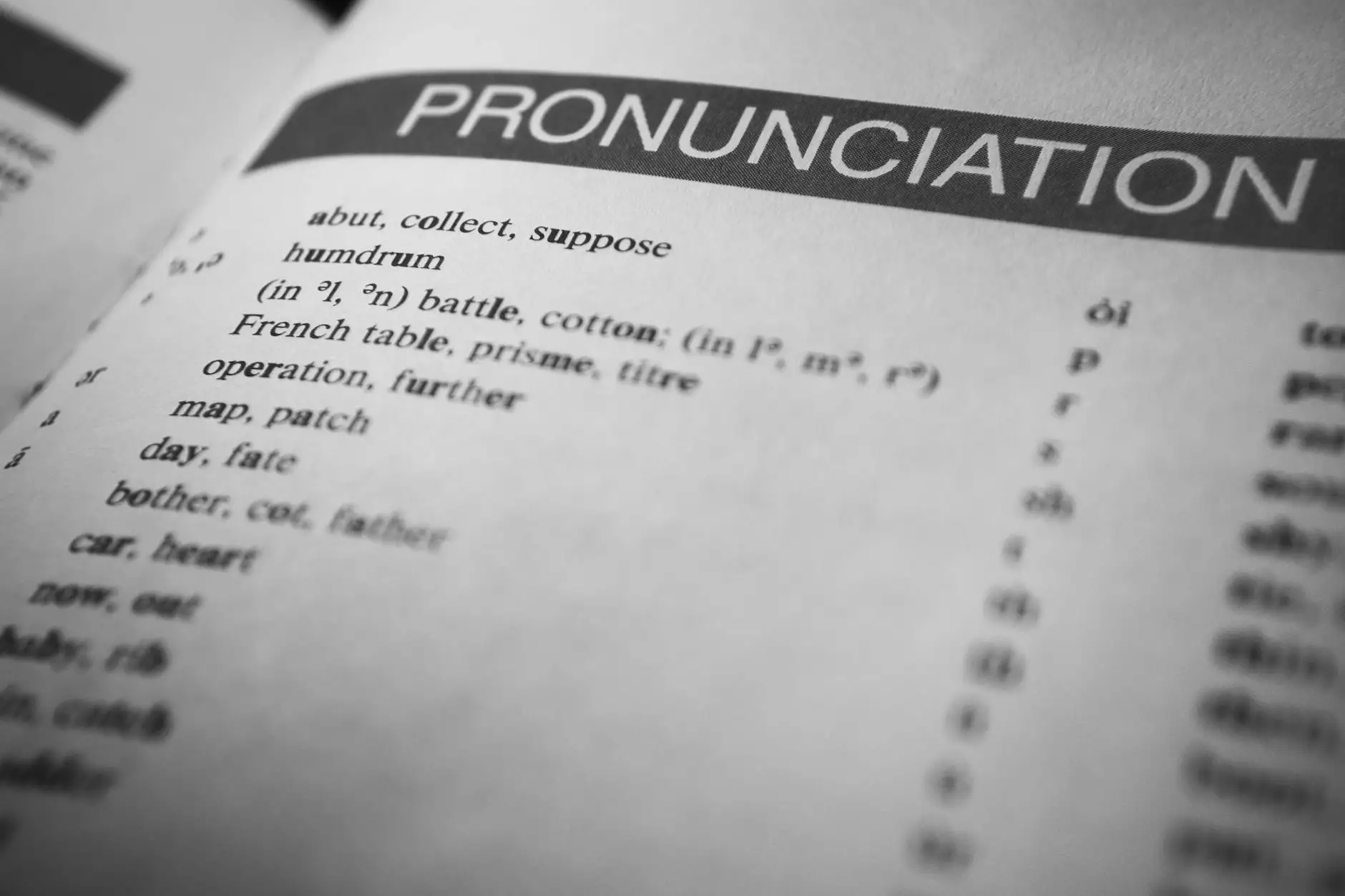95 – Using Never Mind – English Conversational Phrase
English Vocabulary Lessons
The Power of the English Conversational Phrase 'Never Mind'
At NJCLT, we understand the importance of mastering English conversational phrases to enhance your speaking skills and fluency. In this comprehensive guide, we will delve into the intricacies of the phrase 'never mind' and provide you with valuable insights, examples, and tips on incorporating it into your everyday conversations.
Definition and Usage of 'Never Mind'
Before we explore the various scenarios where 'never mind' can be used, let's define its meaning and purpose. 'Never mind' is an idiomatic expression commonly used in spoken English to indicate that something previously mentioned is no longer important, required, or necessary to be pursued.
Using 'Never Mind' in Different Conversational Situations
1. When Correcting Yourself:
If you make a mistake or provide incorrect information during a conversation, you can use 'never mind' to acknowledge the error and signal that the incorrect statement should be disregarded. For example:
Person A: The meeting starts at 2:00 pm.
Person B: Actually, never mind. The meeting starts at 3:00 pm.
2. When Offering Assistance:
'Never mind' can also be used when someone asks for help or information, but then decides they don't need it anymore. By using this phrase, you can politely withdraw your offer or dismiss their request. For instance:
Person A: Can you help me with my assignment?
Person B: Never mind, I figured it out on my own.
3. When Reacting to Apologies:
When someone apologizes for a minor inconvenience or mistake, you can respond with 'never mind' to reassure them that their actions were not a significant issue or bother to you. This phrase is commonly used to lighten the situation. Example:
Person A: I'm sorry for being late.
Person B: Never mind, it's not a big deal. Let's get started.
Tips for Using 'Never Mind' Effectively
1. Clarity and Tone
When using 'never mind,' pay attention to your tone of voice and ensure your message comes across as polite and nonchalant. Avoid sounding dismissive or sarcastic, as it can cause misunderstandings or offend the listener.
2. Contextual Understanding
Be aware of the context in which you are using 'never mind.' Consider the listener's perspective and whether the situation warrants the phrase. Using it inappropriately may lead to confusion or unintended consequences.
3. Alternatives to 'Never Mind'
While 'never mind' is a widely used phrase, there may be other alternatives that can convey similar meanings. Explore variations such as 'forget it,' 'don't worry about it,' or 'it's not important' to diversify your vocabulary and further develop your conversational skills.
Enhance Your English Conversations with NJCLT
Mastering the nuances of conversational phrases like 'never mind' can significantly improve your English communication skills. NJCLT offers comprehensive English language courses designed to help learners achieve fluency and confidence in speaking. Join our program today and unlock your full potential!










